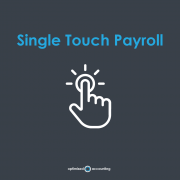
2024 update: since these electric vehicle concessions were released, the ATO’s been catching out business reporting incorrectly and hybrid electric vehicles have different rules. Head to our 2024 article for all the details.
Fringe benefits tax (FBT) is one of Australia’s most disliked taxes because it’s cumbersome and generates a lot of paperwork.
A fringe benefit is a ‘payment’ to an employee or an associate (an associate is someone related to you such as a spouse, child or even a friend), but in a different form to salary or wages. A benefit might be as simple as using a work vehicle, providing meal entertainment, hosting a work Christmas party, providing car parking or providing the goods or services of the business at a reduced rate to what the public pay.
If your business is not already registered for FBT, it’s important to understand if fringe benefits have been provided. Generally, the ATO will look closely at unregistered employers and where there are mismatches in data.
With the FBT year ending on 31 March, we look at the key issues and the Australian Taxation Office’s (ATO) hotspots.
ATO ‘Hotspots’
One of the easiest ways for the ATO to pick up on problem areas is where there are mismatches in the information provided to the ATO. Common problem areas include:
Entertainment deductions
A simple way for the ATO to pick up on a problem is when an employer pays for an expensive entertainment expenses – meals out, tickets to footy matches etc, but there is not a corresponding recognition of the fringe benefit. Entertainment expenses are generally not deductible and no GST credits can be claimed unless the expenses are subject to FBT. If a business pays for an entertainment expense that is non-deductible, this can still be caught under the strict FBT rules.
If your business uses the ‘actual’ method for FBT purposes and the value of the benefits provided is less than $300 then there might not be any FBT implications. This is because benefits provided to a client are not subject to FBT and minor benefits provided to employees (i.e., value of less than $300) on an infrequent and irregular basis are generally exempt from FBT. However, no deductions should be claimed for the entertainment and no GST credits would normally be available either.
If the business uses the 50/50 method, then 50% of the meal entertainment expenses would be subject to FBT (the minor benefits exemption would not apply). As a result, 50% of the expenses would be deductible and the company would be able to claim 50% of the GST credits.
Employee contributions
An employee can make contributions to reduce the amount of fringe benefits tax payable (for example where an employee makes a contribution relating to a car fringe benefit), this corresponding amount needs to be recognised in the income tax return of the employer.
What is exempt from FBT?
Certain benefits are excluded from the FBT rules if they are provided primarily for use in the employee’s employment. These include:
- Portable electronic devices (e.g., laptop, ipad, printers, GPS, etc.,). Larger businesses are limited to the purchase or reimbursement of one portable electronic device for each employee per FBT year;
- A handbag, briefcase or satchel to carry items you are required to use and carry for work, such as laptops, tablets, work papers or diaries. Be warned that if you are using these bags for a mix of personal and work use, then the use needs to be apportioned and will not be fully exempt from FBT. The ATO is not going to pay for your Gucci bag even if you do throw your ipad into it on occasion.
- Tools of trade.
If the item or service provided to the employee is less than $300 and is a once-off, it’s generally classed as a minor benefit and exempt from fringe benefits tax.
If we are looking at business motor vehicles, fringe benefits generally applies. However, if the car was used for business purposes then this use reduces the taxable value and thus the amount of FBT to pay. If the car was only used for business, the taxable value may be reduced to zero.
Logbooks
COVID-19 is likely to have impacted on driving patterns and the ATO have made some concessions where the 12 week log book period was interrupted.
If you are already using the logbook method and have an existing logbook in place, you can still rely on this logbook. However, you must keep odometer records for the year to show how much the car has been driven during the year including any periods where it was made available for personal use.
If this is the first year you have used a logbook, you still need to keep an accurate 12 week logbook. However, if COVID-19 impacted driving patterns during that 12 weeks (e.g. quarantine periods), then the ATO will allow you to adjust the use indicated in the logbook to account for the change in driving patterns.
Not-for-profit salary packaging
Not-for-profit employers often provide salary-packaged meal entertainment to employees to take advantage of the exempt or rebatable cap. Back in the FBT year ending 31 March 2021, the ATO has stated that they will not look into these arrangements where meals are provided by a supplier that was authorised as a meal entertainment provider as at 1 March 2020. This same stance by the ATO applies.
What’s new for the 2023 FBT year
Government introduction of new FBT exemptions for Battery, Hydrogen and plug-in hybrid vehicles
On 27 July, 2022, the Federal Government introduced the Electric car bill into parliament and this passed law, receiving royal assent on 12th December 2022.
What this means is electric cars that fit the government’s set criteria will provide significant FBT savings for employers for electric car purchases made from 1st July 2022.
Watch our short video below of Shaun Farrugia giving a brief explanation what the available concessions are for businesses:
Key Criteria:
- Car benefit must be made to a current employee.
- The car was purchased on or after 1st July 2022
- The car’s 1st ownership is on or after 1st July 2022
- The Car is a ‘Zero or low emissions vehicle’ approved by the government.
- No luxury car tax has become payable on the purchase.
- Retail car value below $84,916
What are the savings to my business?
As there will be no FBT payable this can save businesses up to $7,520 each year.
There will also be a reduced taxable income of up to $64,741 in the year that the car was purchased.
Note: The material and contents provided in this publication are informative in nature only. It is not intended to be advice and you should not act specifically on the basis of this information alone. If expert assistance is required, professional advice should be obtained.
You already knew the news that would affect your business
We make sure what you need to know is in your inbox before it becomes urgent. Subscribe to our newsletter to be ahead of the curve:










